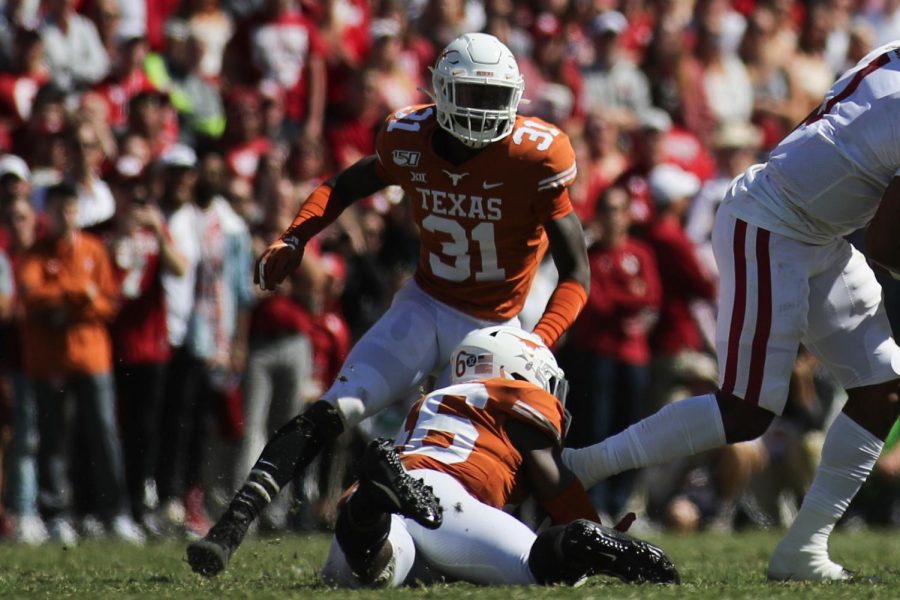Business of college sports enters new era granting athletes Name Image Likeness privileges
July 15, 2021
Editor’s Note: This article first appeared as part of the July 6 flipbook.
The business of college sports entered uncharted territory, bursting with new opportunities and uncertainty, when the clock struck midnight on Thursday, July 1.
With the passage of Senate Bill 1385, Texas student athletes can now receive compensation outside of school-granted scholarships without losing their eligibility. The name, image and likeness law does away with the strict NCAA rules that prevented college athletes from profiting off of endorsements and sponsorships.
“I think we’re heading into a period of semi-chaos as things sort of shake out,” said John Murphy, professor emeritus in the Stan Richards School of Advertising and Public Relations. “You could build a case that college athletes have been sort of like indentured servants in terms of not having the ability to capitalize on something that has economic value, so this is a breath of fresh air.”
Within hours, student athletes across the country jumped at the new opportunities afforded to them, announcing partnerships and brand deals with companies they previously weren’t allowed to work with.
Texas senior linebacker DeMarvion Overshown and senior defensive back Josh Thompson signed apparel deals Thursday with Last Stand Hats, an Austin-based clothing brand. Several other Longhorn football players announced partnerships with Yoke Gaming, a service that allows fans to play video games with athletes.
For athletes to make the most of their newfound economic freedom, Murphy said standing out among a sea of personalized logos and clothing lines will be key.
“What sort of products and services can an 18- to 21-year-old athlete endorse that makes sense?” Murphy said. “In terms of thinking about advertising and marketing, to have the most powerful connection, there needs to be a logical relationship between the endorser and what that person is endorsing.”
At a school like Texas with a large brand located in a major city, NIL benefits will extend far beyond just the most popular players on the football team. Lauren Burke, a junior softball utility player who has nearly 400,000 followers on TikTok, signed Friday with Barstool Sports, an internet and sports blog.
Based on their Instagram posts, neither Burke nor Barstool founder Dave Portnoy know exactly what it will mean to be an official Barstool athlete yet, a sign of how rapidly the scene is changing at the moment.
One of the few certainties is how large of a role social media will play in the new NIL era, with more popular athletes likely to garner lots of attention from companies that no longer have to become official school sponsors to reach Texas fans.
Despite NIL’s benefits, murky water lies ahead in regards to how the new policies will be monitored. Questions will certainly arise about how large of a role cash benefits will play in the recruitment of high school athletes. Already, the various Texas athletics social media accounts have been advertising to recruits on how they could benefit from the Texas brand and popularity if they come to Austin.
“If you go to the University of Texas versus other schools in the state that are not as widely known, don’t have as big of an alumni base and so on, you’re not going to be able to benefit from (NIL) as much as a student here,” Murphy said. “That strikes me as being a little unfair.”
Regardless, NIL is the new reality for college sports. Student athletes must now make important decisions on how to brand themselves and who to align with for their economic interests.
“Proceed with caution,” Murphy said. “Realize that who you align yourself with is going to affect your ability to monetize (yourself) in the future.”



